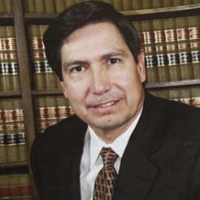Marion Misdemeanor Lawyer, Texas
Sponsored Law Firm
-
 x
x

Click For More Info:
-
Stephanie Alvarado Attorney at Law
100 N Central Expy Suite 805 Richardson, TX 75080» view mapCriminal Defense Law Fighting Against Unjust Prosecution
Attorney Stephanie Alvarado is there for her clients when help is needed right away. Helping people charged with crimes in Texas for over 20 years.
800-988-5471
Robert J. Barrera
✓ VERIFIEDCriminal, DUI-DWI, Felony, Misdemeanor
When you face civil or criminal charges, you need an attorney with the experience and competence to ensure the best possible outcome for your case. Tr... (more)
Gary Churak
White Collar Crime, Misdemeanor, Felony, Criminal
Status: In Good Standing Licensed: 42 Years
FREE CONSULTATION
CONTACTFREE CONSULTATION
CONTACTFREE CONSULTATION
CONTACTLea Ann Ream
Litigation, Employee Rights, Employment, Family Law, Misdemeanor
Status: In Good Standing Licensed: 33 Years
FREE CONSULTATION
CONTACTCarolyn Marie Wentland
White Collar Crime, Criminal, Misdemeanor, DUI-DWI
Status: In Good Standing Licensed: 24 Years
Larry Dean Bloomquist
Criminal, Felony, Misdemeanor, White Collar Crime, DUI-DWI
Status: In Good Standing Licensed: 22 Years
FREE CONSULTATION
CONTACTRobert Tylden Shaeffer
Juvenile Law, Misdemeanor, DUI-DWI, Criminal
Status: In Good Standing Licensed: 34 Years
 Stephanie Alvarado Richardson, TX
Stephanie Alvarado Richardson, TX Practice AreasExpertise
Practice AreasExpertise

